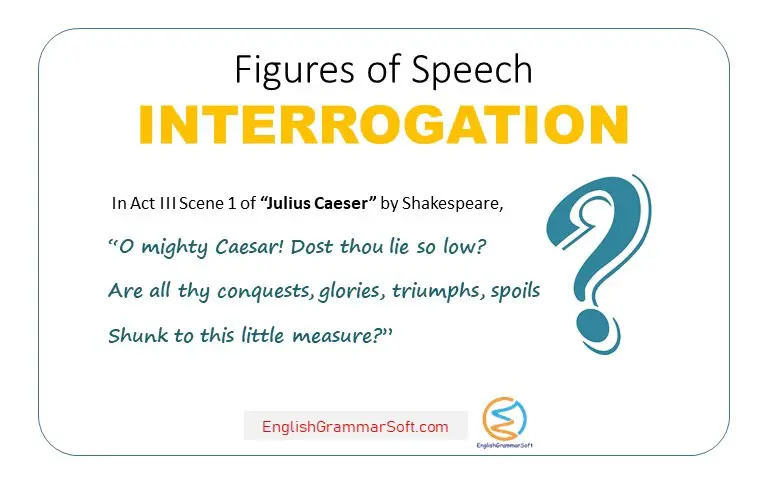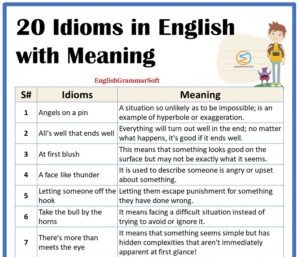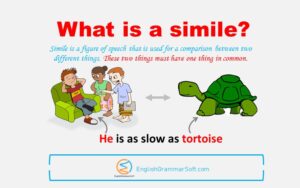Interrogation Examples in Literature (Figures of Speech)
Interrogation Definition
A literary device in which a statement is used in form of a question in order to understand the idea or meaning with rhetorical force. Its purpose is not to ask a question but to make emphasis upon the statement. In this form of interrogation a question is asked not with the expectation of an answer, but to emphasize or express a self-evident truth.
If this figure is used too much it becomes monotonous and unimpressive. For example, “Who could believe that this would happen?” is more vivid than ‘No one could believe that this would happen.”. This is a question propounded for its rhetorical effect and not requiring a reply.
It was first known use in 1534.
Common Examples of Interrogation
- Am I an idiot to fall for your lies?
- Who do you think you are acting that way?
- This is my own, my native land?
- Who is here so vile that will not love his country?
Interrogation Examples in Literature
1. In Act III Scene 1 of “Julius Caeser” by Shakespeare,
“O mighty Caesar! Dost thou lie so low?
Are all thy conquests, glories, triumphs, spoils
Shunk to this little measure?”
Antony is talking to Caesar’s dead body about why he had to die when he was such a good person and how he’s going to miss him. He is remembering his grandeur and conquests in wars which seems to remain no more.
2. In “Harlem” byLangston Hughes
What happens to a dream deferred?
Does it dry up like a raisin in the sun?
Or fester like a sore and then run?
Does it stink like rotten meat?
Or crust and sugar overlike a syrupy sweet?
The poet has expressed gloomy and depress feelings of the blacks in America with a postponed dream. The speaker tells that having a deferred dream is painful. It tells us what will happen if we postpone our dream too long. A deferred dream makes us lifeless like a raisin in the sun and pain will be worse like a sore. If we stay postponing our dream, it will stink and rot and it becomes disgusting for the dreamer.
3. In Pope’s poetical epistle, he concluded his passage on Addison:
“Who would not laugh, if such a man there be?”
Who would not weep, if Atticus were he?”
In the above lines, the negative interrogation affirms and the positive denies. It was written in the form of a dialogue between the poet and his good friend, Dr. Arbuthnot, a physician, and contemporary literary figure. The “Atticus” of the section in which this quotation occurs is Joseph Addison, a quiet and workmanlike man of letters of the period. Pope, however, felt that he had more than one grievance against Addison; in this poem, he complains, not quite fairly, that his critic, not being able to stand competition, causes others to sneer at Pope’s work to which Addison himself gives less praise than it deserves.
Further Reading
- Examples of Assonance
- Examples of Innuendo
- Examples of Exclamation in Literature
- Onomatopoeia Examples
- Types of Paradox in Literature
- Oxymoron Examples from Literature
- Synecdoche Examples in Literature
- Figures of Speech with Examples
- Antithesis Examples in Literature
- Euphemism Figure of Speech
- Pun Figure of Speech
- Metonymy Classification & Examples
- What is a simile in literature? How to write a good simile?
- Types of Metaphor with Examples
- Apostrophe as a Figure of Speech
- Personification with Examples
- Hyperbole Definition and Examples
- Fable Meaning and Examples in Literature
- What is Epigram in Figure of Speech?






